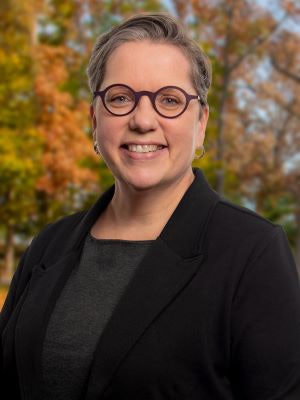With bipartisan support, Virginia Governor Ralph Northam’s tuition-free community college initiative, “Get Skilled, Get a Job, Give Back (G3),” was signed into legislation last week.
 Dr. Anne M. Kress
Dr. Anne M. KressBeginning July 1, low- and middle-income community college students working towards degrees in information technology and computer science, early childhood education, manufacturing and skilled trades, health care or public safety can qualify for financial assistance to cover the cost of tuition, textbooks and other fees.
“The G3 program will connect thousands of Virginians with the skills, training and resources they need to secure jobs in high-demand fields and support themselves and their families—all without being forced to shoulder mountains of student debt,” said Northam.
To be eligible for G3, students must apply for federal or state funding programs such as Free Application for Federal Student Aid (FAFSA) and be Virginia residents. Additionally, their household incomes cannot surpass 400% of the federal poverty line—equating to an income of $100,000 for a family of four.
Pell-eligible full-time students can also receive wraparound financial assistance for transportation, childcare and food expenses. Grants would equate to $900 per semester and up to $450 per summer term, Northam reported.
“G3 is transformational: it puts a college degree that leads to a meaningful career within reach of the full diversity of the Commonwealth,” said Dr. Anne M. Kress, president of Northern Virginia Community College (NOVA). “An investment in community college students is an investment in Virginia, one that will help families find economic security while helping the state achieve economic growth.”
Over 8,000 current students at NOVA meet the program’s income threshold, she said.
The passing of G3’s legislation—House Bill 2204 and Senate Bill 1405—comes at a time when the country and world continues to grapple with the effects of COVID-19.
In the United States, the pandemic shed light on the existing inequities within the higher education sector.
The transition to online learning created barriers for students unable to access technology and broadband. To combat this, schools such as John Tyler Community College (JTCC) provided computers, webcams and other support to ensure coursework completion. .
“Internet access needs to be available and affordable in all communities,” said Dr. William Fiege, vice president of learning and student success at JTCC. “This will make education accessible to more people and reduce additional barriers such as childcare and transportation.”
 Dr. Paula P. Pando
Dr. Paula P. PandoThe pandemic also significantly impacted enrollment. Compared to spring 2020, community college enrolled declined by 9.5% in spring 2021, according to the National Student Clearinghouse Research Center.
Virginia community college leaders remain hopeful that the G3 program could contribute to an increase in enrollment.
“We are very aggressively trying to reengage students who due to COVID and other reasons dropped out,” said Dr. Paula P. Pando, president of Reynolds Community College. “They were doing fine academically and then they just did not return. G3 is one really great tool to be able to reengage those students.”
As businesses reopen and more individuals receive the COVID-19 vaccine, more job opportunities are becoming available. However, there is currently a disconnect between the skillset of low-wage workers and the needs within industries, said Dr. Frank Friedman president of Piedmont Virginia Community College.
“The only way they can really get that skill set is to go to a community college,” he said. “That’s where people go to upskill and be ready for a better job and a better career. The problem is coming out of the pandemic, so many people are just having trouble having enough money to pay the rent or put food on the table. The G3 program is a perfect opportunity because it will solve the affordability question for so many of those individuals.”
As institutions and policymakers look to make college more affordable, Pando emphasized that the full cost of attendance goes beyond tuition. Many community college students also have to pay other life expenses including rent, transportation, food and childcare to attend class. Therefore, even on full scholarship, college can be unaffordable for students.
“I think the next stage is really understanding the totality of factors that impact the student’s ability to not just access higher education, but to complete what they started,” she said. “And tuition is just one piece of that puzzle. It is a big piece and that is why we are celebrating. But it is just one piece of that puzzle.”
To address this issue, lawmakers are working towards developing other policies such as the Jumpstart our Businesses by Supporting Students (JOBS) Act. Cosponsored by Sens. Tim Kaine D-VA and Rob Portman R-OH, the Jobs Act would allow students enrolled in at least a 150 hour, eight-week short-term skills or job training program to be Pell grant-eligible, according to Kress.
Sarah Wood can be reached at [email protected].















